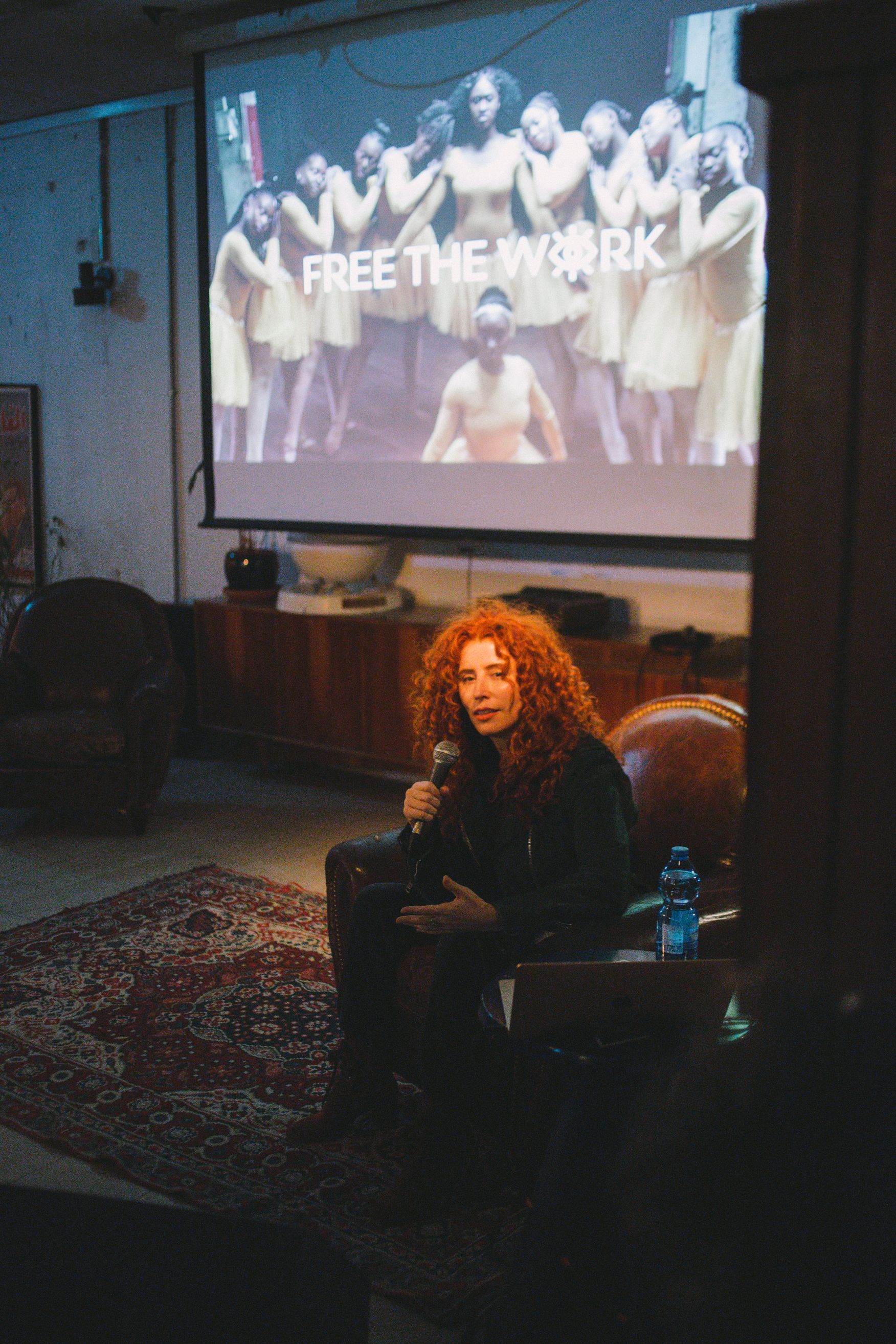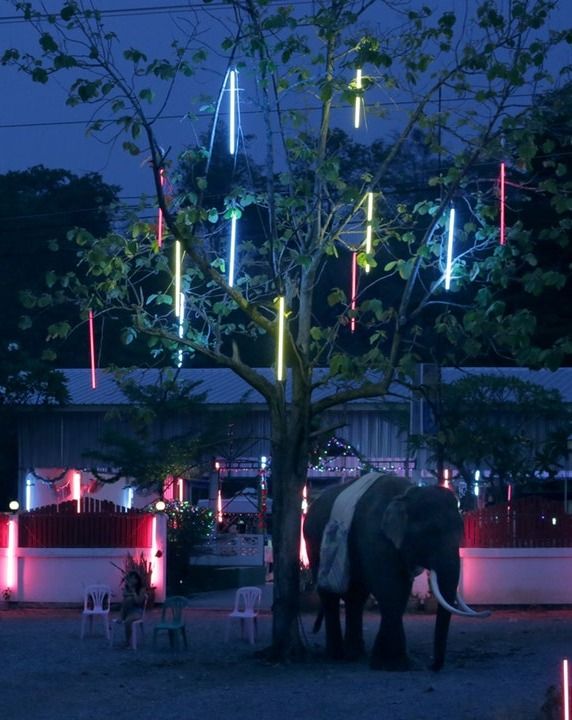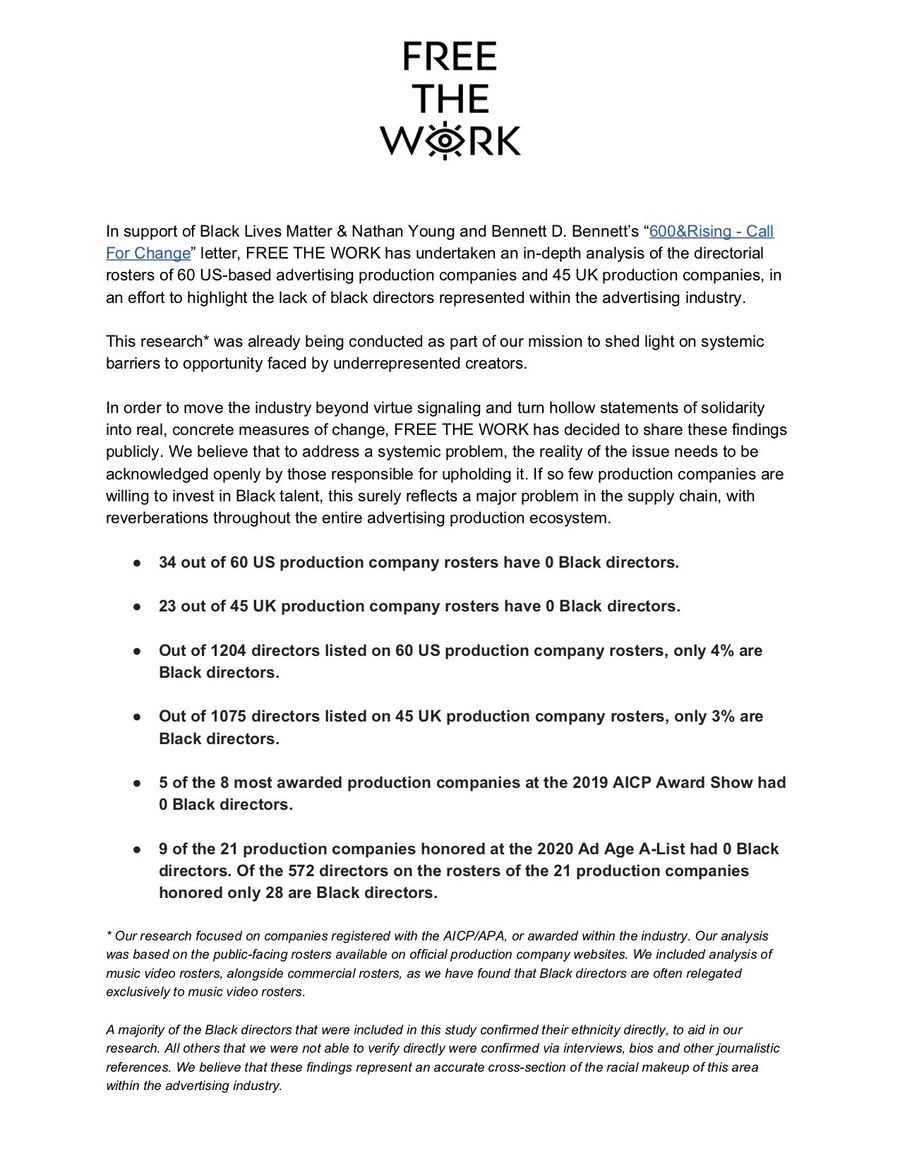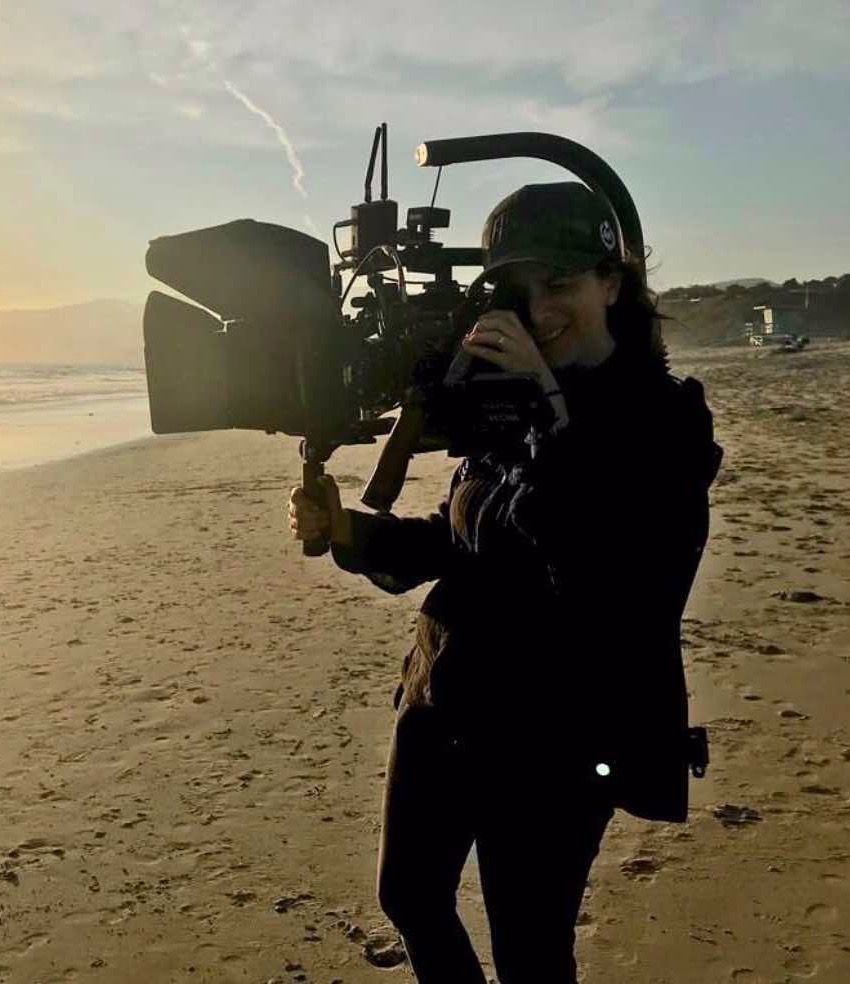Header Photo Credit: P-Valley / Courtesy of Katori Hall
Why Katori Hall and why now? It’s simply because she knows who she is and the importance of giving the underdog a platform to be seen, heard, and celebrated. Her success as a writer comes from the blueprint of who she is: a southern Black woman from Memphis, Tennessee. Those roots are infused in the foundation of every written work she creates, making Katori’s storytelling a breath of fresh air in a muddy world.
Already an award-winning playwright who has had huge success in the theater world, she’s setting her sights as a storyteller on the small screen, adding another accolade to her Black girl magic. Her TV series P-Valley premieres on Starz on July 12th and follows the lives of the complex characters who work and visit Pynk, a small strip club in Mississippi. The show is already making major noise in Hollywood because of its raw authenticity. Every word, every scene, and every camera angle is incredibly intentional. P-Valley strips away the multiple layers of fantasy and breaks through the fourth wall, giving viewers an unfiltered look into the lives of strippers in the Dirty South.
Not to mention, P-Valley is directed by all women directors to ensure that authentic vision: Tamra Davis, Barbara Brown, Sydney Freeland, Geeta V. Patel, Kimberly Peirce, Millicent Shelton, Tasha Smith, and Karena Evans, who directed the pilot.
Read on to learn more about the powerhouse storyteller and her game-changing new series.
FTW: What was your creative process in creating P-Valley?
Katori Hall: I did a ton of research. I’m from Memphis, Tennessee so I am a southern gal and you know strip club culture there is a part of the social fabric. As a younger woman, I frequented strip clubs all the time and so I would say my first entry point was from the customer, a female customer. To see those women up on the pole doing some of the most athletic things I’ve ever seen anybody do was just inspiring to me. I looked at what they were doing as an actual craft. I even tried to take a pole fitness class because I wanted to learn how to spin and do the things I saw those girls do, and I quickly learned how hard the craft of exotic dancing is. That was the beginning of my research.
I embarked on a six-year-long journey where I went to over 40 clubs and interviewed tons of women. These women do get a bad rep and so I approached the research as a journalist. I asked those hard questions, met their husbands, met their sons and daughters. I wanted to really understand why these women have chosen this profession, or if it was a profession they chose out of survival. The process was so needed because it allowed me to go down deep. I ended up moving those conversations from the actual floor of the strip clubs to their locker rooms and then, ultimately, their homes. There was a lot of transparency because I came to the world with a lot of respect.
“I am very cognizant of the heavy heritages that I have when it comes to the South, the fact that we are dealing with all these isms whether it’s racism, classism, and/or sexism,” says Katori. “I want my characters to really articulate their own identity within the very complicated system of oppression that America is.”
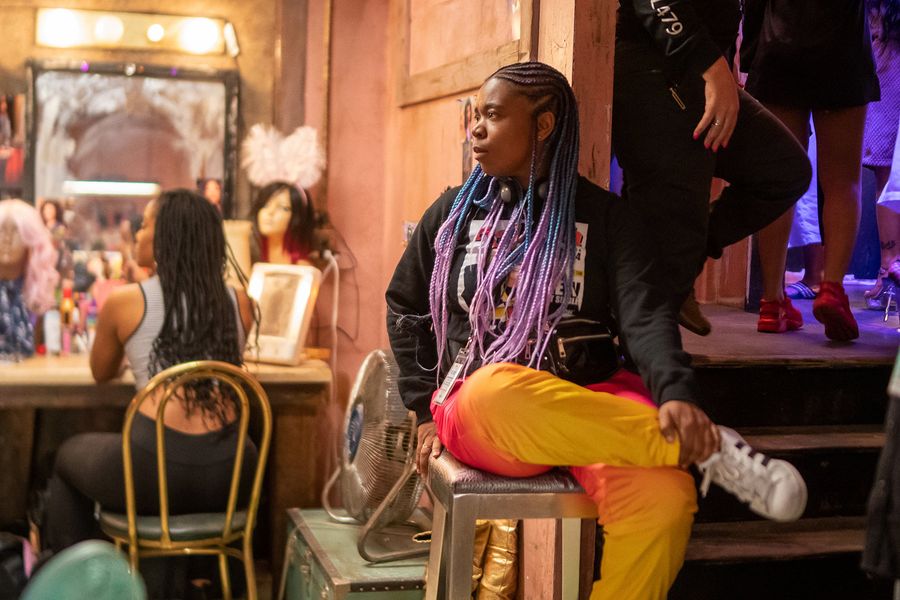
P-Valley was a stage play, so how did you take it from the stage to the screen? Did you make any adjustments to the storytelling technique?
The process [of adapting the play for TV] was very challenging. The authenticity is still the base of the story because I had done so much research, but with TV, the story needs an engine that demands that people come back every week. When we got into the writers room, it was full of diverse writers, female writers, and there was even a former dancer there. We just pulled from everyone’s lived experiences. We made sure that we were going to balance the textures of the worlds that were so exquisitely shown in the play with the demands of long-form storytelling.
We changed characters and gave some characters different backstories. [For example] in the play version, Autumn Knight was an elementary school teacher who was just curious about the world. In the TV version, she is this woman running from a dark past and she uses the strip club as a way to hide in plain sight.
We infused the TV version with mystery and intrigue just because those types of elements pull in an audience over a longer period of time. However, there was quite a lot of stuff that stayed intact, like the story of domestic abuse that was central to the play version. It’s very essential to the TV version as well.
At the end of the day, this story comes from a Black woman who grew up in the South. My Southern roots, my Blackness will always be infused in absolutely every detail that I lay down in the blueprint that is the script.
You really see that. There’s such subtlety in the complexity of your characters. How did you infuse that?
Those subtle nuances, those nods to religion, those nods to culture—it’s in the language, it’s in the visuals, it’s even in the way the characters look at each other. All of that is just a reflection of how this story comes from a really specific cultural experience, but we are telling a universal story. Everyone can see themselves in the mirror we are holding up to society.
"I talked to my directors a lot about how I wanted to center the show within the female gaze…All the techniques we used in the show were about what the women were experiencing and not about how they looked."
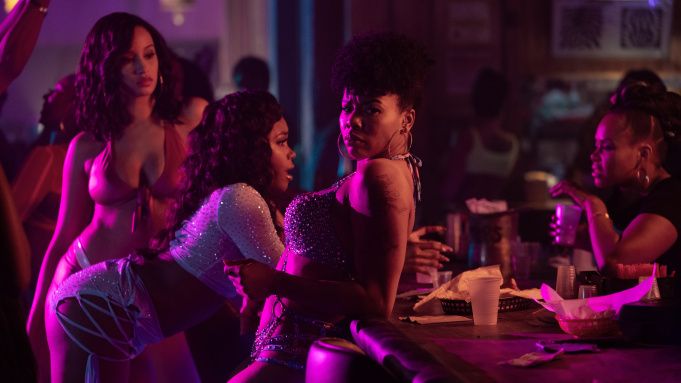
How involved were you in the casting process?
I was so involved to the point where the casting director was like, “Let me do my job now.” Every step of the way, I wanted the show to be known for its authenticity and I know casting is 90% of that. We looked at thousands of tapes. We employed multiple casting directors all over the nation because I was scouring the ends of the Earth to find the perfect actors to step into these characters that I had created.
I really lucked out with Brandee Evans, who plays Mercedes. She has a dancer’s background and has danced background for Katy Perry. A lot of the actresses trained by themselves for many months before coming to Atlanta to work with our choreographer Jamaica Craft. Jamaica understood how hard the craft of exotic dancing is and hired dancers from the club to be her assistant choreographers. I think maybe two of them ended up getting a role on the show because, as I said, authenticity is always key. We hired a lot of other dancers, from Magic City to Peaches, as key back up dancers. You are always seeing a real dancer on screen.
Were you as equally involved in hiring the film crew?
I would say all the choices were mine until I found a person that I can trust. For example, when it came to the cinematography, I had very frank conversations with our DPs Nancy Schreiber, who is a woman, and Richard Vialet, who is a Black man, about how I wanted the people who are lensing our women to be a diverse eye. We had "B" camera who was a woman named Janice Min. I just remember looking around the tent and thinking, “Everybody is represented here, it's like the United Nations up in this tent.” It was a beautiful sight to see because that is not regular.
P-Valley is very female-encompassed but I also found the Black male characters as equally as intriguing and complex in their vulnerability. Was this intentional to show Black men in this light?
Absolutely. I feel as though they are depicted as either a criminal or this upstanding perfect guy, and those are the two choices we have to oscillate between when it comes to depictions of Black men. For me, I don’t want anyone to be black and white. I love creating characters that are gray, and in that grayness I want men to be able to cry. I want to see men cry, I want to see men struggle and be angry and be protective because that is the rainbow of the human experience.
We were able to give all of our men the gift of diversity within their own emotions. That’s a goal for all of our characters. People tend to put fantasy upon Black women’s bodies, but I think upon Black men’s bodies we project fear. I really wanted to create a space where Black men can just be human.
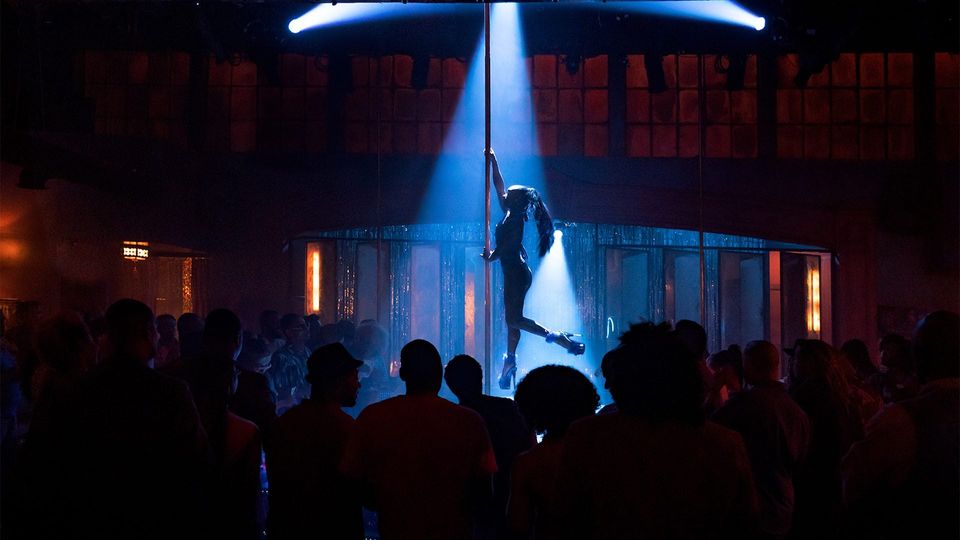
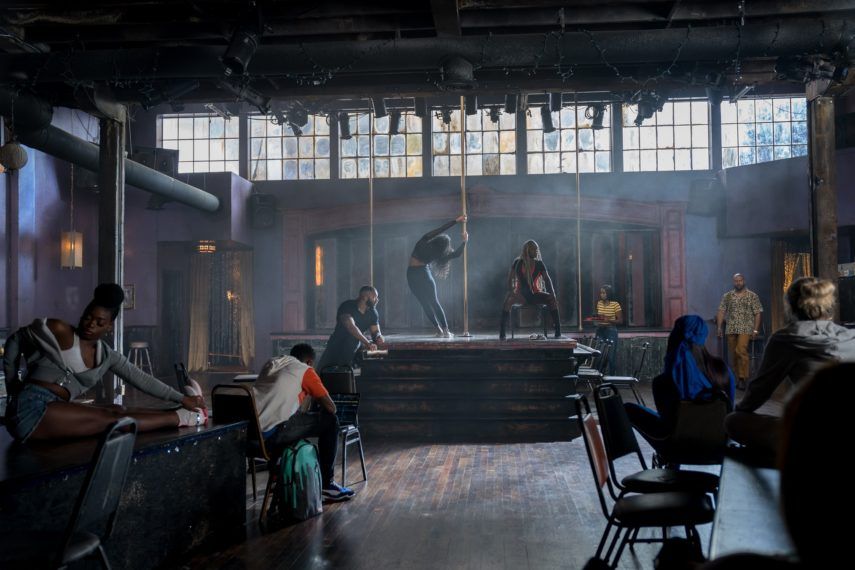

Was there anything you would say that was intimidating about exploring this world and bringing it to a platform like Starz?
The biggest thing I was intimidated by was that I am well aware that Black women have been hyper-sexualized in our culture—whether in our own community or in the hip-hop world or through the ages of slavery. I think about when Black women were put on the auction block naked so they can be pawned over by white men. I know there are a lot of fetishes and fantasies put upon Black female bodies. So, I am very sensitive to the fact that I was about to embark on a story that required nudity.
The way that the show confronts and unpacks that history was to show these women as real human beings. This business of desire exists, and we have to acknowledge that. This world is very complicated, and even though it is exploitative, a lot of women have been able to gain financial freedom.
I talked to my directors a lot about how I wanted to center the show within the female gaze. If we can understand these women and why they dance. I wanted to show people they had aspirations and had complicated relationships not only with each other but with their mothers and the customers, it just made them more human. Especially in a world where those particular women are so susceptible and they have been dehumanized for so long. That to me was the biggest challenge I had to confront as we worked on the series. And I think the time that it took allowed us to be thoughtful with everything, from the casting to how we shot everything to even addressing nudity and articulating intimacy. We worked with an intimacy coordinator and we made sure we framed things in a way that there is nudity, but sometimes it’s suggested. All the techniques we used in the show were about what the women were experiencing and not about how they looked.
"For me, I am always looking for those who have been placed in the footnotes of history or just erased. I am very committed to those stories; I am really engaged with revising the history books. That is my mission statement, and I will never be out of work because there is so much stuff to say."
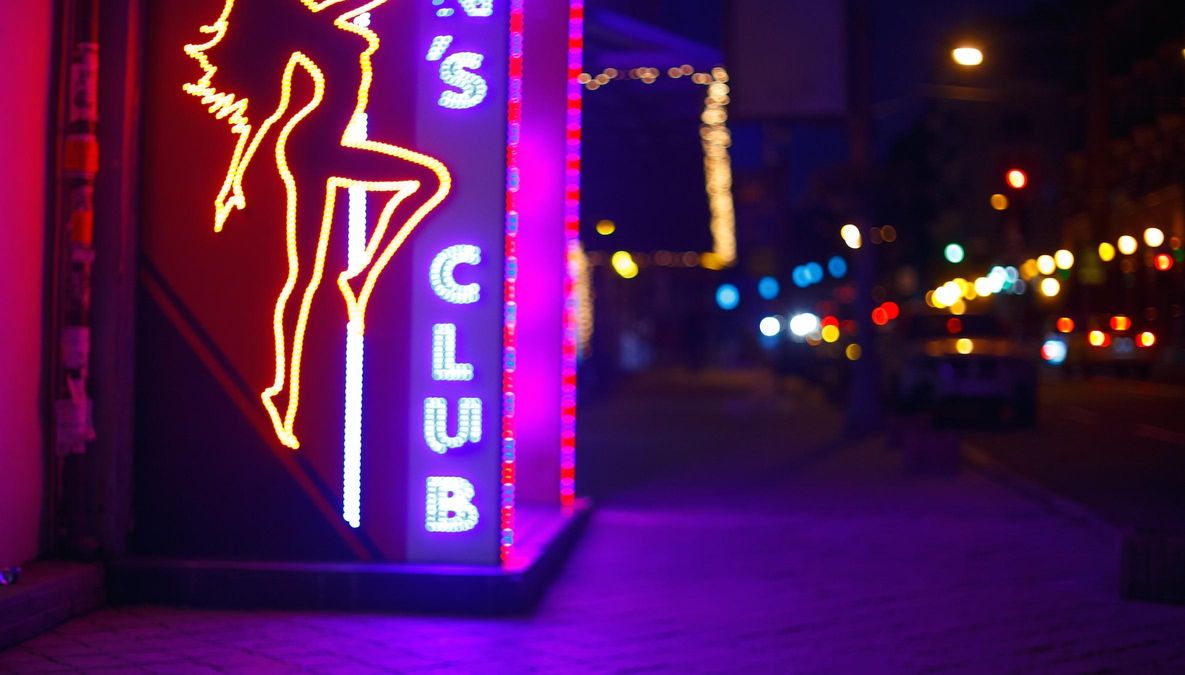
As a storyteller, how would you define your style?
The Katori Hall experience is authenticity, humor, darkness, and love. I just love to show us as we are without shame, being extremely unapologetic. Oftentimes as a Black content creator, there’s a responsibility placed upon your shoulders and it can feel like a burden. For me I find humanity inspiring, I find resilience inspiring. I aspire to be as resilient as Fannie Lou Hamer was. For me, I am always looking for those who have been placed in the footnotes of history or just erased. I am very committed to those stories; I am really engaged with revising the history books. That is my mission statement, and I will never be out of work because there is so much stuff to say.
Any advice you can give to the emerging creatives?
Always do you, boo. I wish I could put that on a t-shirt. Oftentimes, we try to be derivative, we try to walk into other people's lanes. I think you can be inspired by people, but you need to acknowledge and embrace your artistic voice.
This show was a hard sell. It was a challenge to produce for a lot of different reasons. I was grateful to find amazing partners along the way because I stayed true to my vision. There was something I wanted to say by working on this story. Everyone's voice matters, but women, Black women in particular, and the Black women who are a part of this marginalized group of sex workers—the people who are the most vulnerable, the people who have been dehumanized for centuries—it is their time to be heard. The stage and the mic is ours right now.
Katori Hall
Katori Hall is an Olivier Award-winning playwright and creator who will next debut her first television series, P-VALLEY, coming to STARZ on Sunday, July 12. Katori is the creator, showrunner, EP and writer of the hour-long drama series, which is based on her acclaimed play, Pussy Valley. Katori most recently wrote the hit Broadway and West End musical, Tina: The Tina Turner Musical, as well as the Off-Broadway play, The Hot Wing King, which premiered in Spring 2020 at NYC’s Signature Theatre. She is perhaps best known for her play The Mountaintop, which fictionalizes the last night in Martin Luther King Jr.’s life and is based on her own mother's experiences in Memphis during that time, for which Katori won the Olivier Award in 2010 before opening on Broadway in a production that starred Samuel L. Jackson and Angela Bassett.
S-hekh Shem Hetep Ebron
S-hekh Shem Hetep Ebron is an LA-based freelance director from New York City, who believes in the transformative power of storytelling. She started her career as a journalist, which afforded her the opportunity to travel globally and meet people from all walks of life. This experience ignited her true desire and passion for film making. She has produced documentaries for Sony Music and Moguldom studios. In 2017 she made her directing debut at the LA film festival with her short film "I, Too, Am America." She has also directed and produced music videos for countless independent artists including grammy nomination artist Ruby Friedman. In 2020 she directed her first feature "Ishema" In Rwanda. The film is currently in post-production. S-hekh Shem Hetep hopes to use filmmaking and storytelling to inspire social change while transfiguring the fabric of modern films. In addition to being a director and producer, she is also a philanthropist. In 2015 she co-founded TATFor, a nonprofit organization based in Rwanda, that provides school supplies and resources to students.
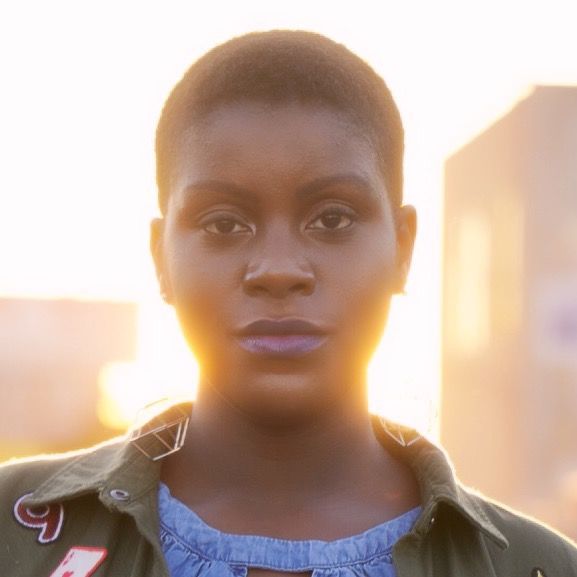
![PUV1 102 041019 0059 a 1800x1200[3]](https://resources.freethework.com/wp-content/uploads/2022/11/PUV1_102_041019_0059_a_1800x1200_3_.jpg)
